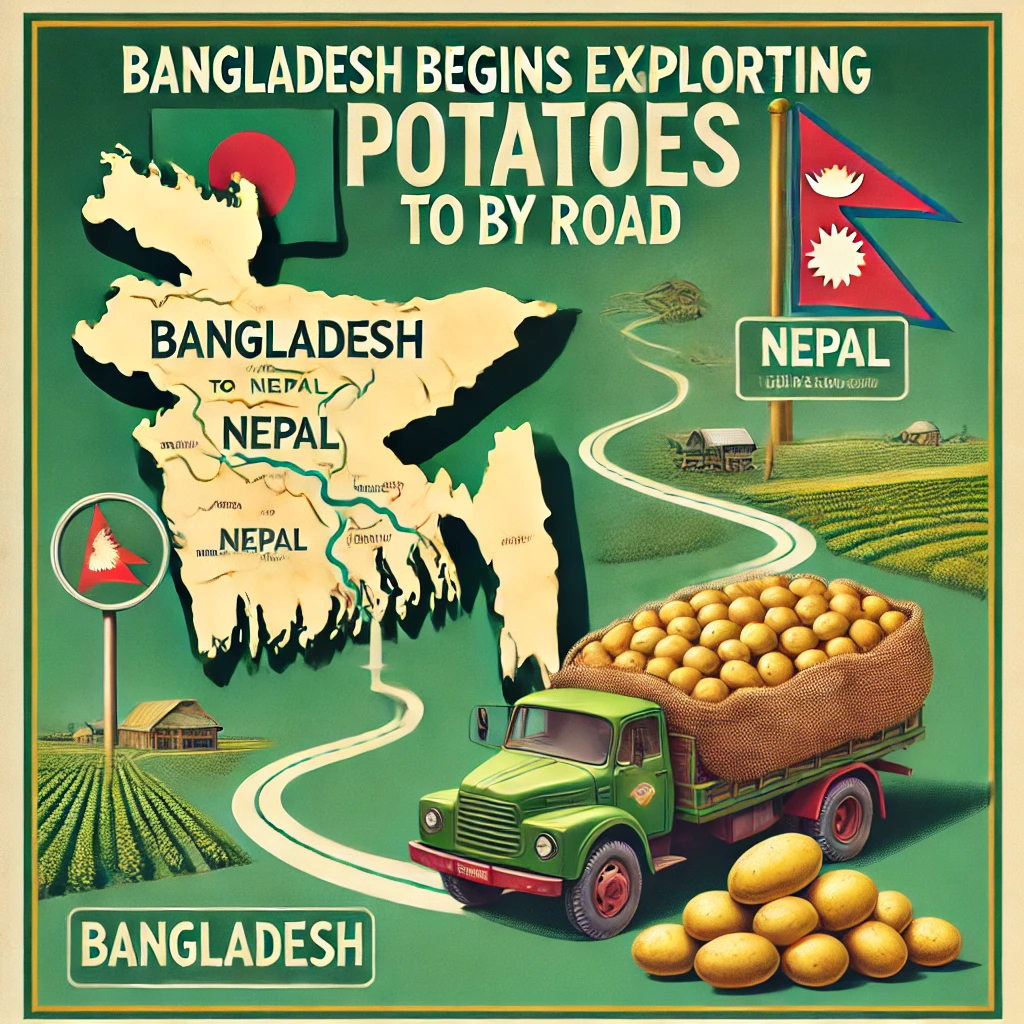Bangladesh Begins Exporting Potatoes to Nepal by Road: A Boost for Agricultural Trade
Bangladesh has taken a significant step in strengthening its agricultural trade by initiating the export of potatoes to Nepal via road transportation. This development marks a promising opportunity for both countries, benefiting farmers, traders, and consumers alike.
Growing Demand for Bangladeshi Potatoes in Nepal
Nepal heavily relies on imports to meet its potato demand, particularly during off-seasons when domestic production falls short. With a growing preference for Bangladeshi potatoes due to their quality and competitive pricing, the trade between the two nations has gained momentum. Bangladesh, one of the world’s top potato-producing countries, sees Nepal as a natural market for its surplus production.
Road Transportation: A Cost-Effective and Efficient Solution
The decision to export potatoes to Nepal by road comes as a practical solution to logistical challenges. Road transport offers several advantages, including:
- Faster Delivery: Compared to sea or air transport, road transport ensures quicker transit, reducing the risk of spoilage.
- Lower Costs: It is more economical than air freight, making Bangladeshi potatoes more competitive in the Nepali market.
- Direct Supply Chain: Road transport eliminates unnecessary handling, ensuring fresher produce reaches Nepali consumers.
The primary route for these exports runs through Bangladesh’s northern border points, such as Banglabandha land port, which connects with Nepal via India. This corridor has proven to be an efficient and cost-effective trade route.
Government Support and Trade Facilitation
The Bangladeshi government has played a crucial role in facilitating this trade by easing export regulations and providing incentives for agricultural exports. Additionally, trade agreements between Bangladesh, India, and Nepal under the South Asian Free Trade Area (SAFTA) framework have made cross-border trade smoother.
However, challenges such as customs procedures, border logistics, and coordination among the three countries remain areas for improvement. Increased collaboration between the governments could further streamline the process and enhance trade efficiency.
Economic Impact and Future Prospects
The export of potatoes to Nepal not only benefits Bangladeshi farmers by providing them with a stable market but also strengthens bilateral trade relations. It contributes to Bangladesh’s goal of diversifying its export basket beyond garments and textiles.
Looking ahead, Bangladesh has the potential to expand its agricultural exports to Nepal and other neighboring countries. With continuous improvements in logistics, trade policies, and agricultural productivity, the potato trade could pave the way for further economic cooperation between Bangladesh and Nepal.
Final Thoughts
The export of potatoes from Bangladesh to Nepal by road is a milestone in regional trade cooperation. As both nations work towards enhancing their agricultural trade, this initiative showcases the benefits of regional connectivity and economic collaboration. With sustained efforts, Bangladesh can establish itself as a key supplier of potatoes and other agricultural products to its neighboring countries.


